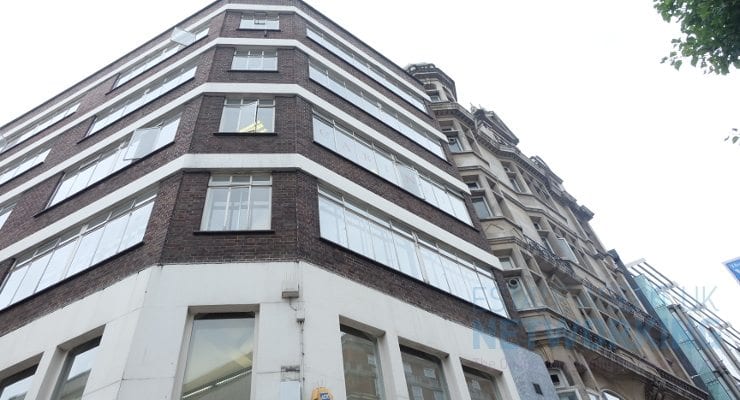What do record low interest rates mean for UK savers?
The Bank of England’s decision to lower interest rates to an all-time low of 0.1% might be good news for those looking to borrow money, but for those looking to save could see their rate of return fall by as much as -62.5%.
This is according to the latest research by peer to peer lending platform, Sourced Capital, who looked at the average rate of return across a number of saving products in the 12 months prior to the outbreak of the Coronavirus and what the changing economic climate could mean over the coming year.
Sourced Capital based their predictions for the year ahead on the average rates seen across each product following the last time the Bank of England lowered rates to a record low of 0.25% in April 2016. However, with interest rates now even lower, the reality could be an even bigger reduction in interest paid via these different savings options.
Instant Access Savings: -62.50%
The research shows that in the 12 months prior to the first reports of Coronavirus in December of last year, the average Instant Access Savings Rate offered an average rate of 0.4%; meaning £1,000 invested would have returned just £4 over the course of the year.
However, based on historic rates offered the last time interest rates hit a low of 0.25% in April 2016, the next year could see this rate of interest reduce to just 0.15%, reducing its yearly return to just £1.50 – a 62.5% reduction.
Variable Rate ISA: – 48.2%
Last year the average Variable Rate ISA returned a healthier level of interest at 0.85% or £8.50 on a £1,000 investment. The coming year could see this drop to 0.44% reducing returns to £4.40, a drop of 48.24%.
Fixed-Rate Bonds: -28.7%
Investing in Fixed Rate Bonds has returned a better average of 1.01% in the year prior to the Coronavirus outbreak, a £10.10 return on investment of £1,000. But last time interest rates dropped to a record low, the average rate of interest on Fixed-Rate Bonds was just 0.72%, meaning a similar rate would see returns reduce to £7.20; a fall of 28.7%.
1-Year Fixed Rate ISA: – 25.2%
Finally, a one year Fixed Rate ISA has been the best savings option in the last year, with an average rate of 1.31% interest meaning a £1,000 investment would return a giddy £13.10. While the latest change in rates would still see this saving option remain the most lucrative, rates could drop to 0.98% meaning £1,000 over the coming year would see just £9.80 back – a fall of -25.2%.
Stephen Moss, founder and MD of Sourced Capital, commented:
“A very bleak outlook ahead for those trying to save, with many not only facing a reduction in income over the coming months but a pitiful rate of return on any savings they have tucked away.
There’s a good chance you could accumulate more interest finding loose change on the street than you have via the mainstream savings products over the last year, and with a new record low in interest rates, this looks set to get even worse for the immediate future.
Now more than ever, alternative products such as Innovative Finance ISAs can offer a better option and a more consistent return of between ten and twelve percent a year. While there is a risk involved in investing, this is arguably the only worthwhile way of making your money work harder for you in what is currently a very tough landscape. Leaving it sat dormant in a savings account, bond, variable or fixed ISA is the savings equivalent of putting it on furlough.”
What is an IFISA?
The IFISA is a category of ISA which was launched in April 2016 for UK taxpayers and can provide returns as high as 10-12% an annum, although capital is, of course, at risk. Previously, there have been two main types of ISA: Cash ISAs and Stocks and Shares ISAs.
Similar to these ISAs, the IFISA allows you to invest money without paying personal income tax. This enables you to invest your money into the growing peer to peer market.
Like cash ISAs Each tax year, you get an allowance of up to £20,000 to put into IFISAs which you can distribute across your different ISAs should you wish to. In addition, you can transfer your previous year’s ISA investments into your IFISA.
|
Period
|
Average Instant Access savings rate
|
Average Fixed Rate Bonds (1 year) rate
|
Average Variable Rate ISA
|
Average Fixed Rate ISA 1 year
|
SOURCED Innovative Finance ISA
|
|
Pre-coronavirus
|
|||||
|
Average rate 12 months before (Dec 2018 – Nov 2019)
|
0.40%
|
1.01%
|
0.85%
|
1.31%
|
10%
|
|
Example Savings Amount
|
£1,000
|
£1,000
|
£1,000
|
£1,000
|
£1,000
|
|
Interest on savings
|
£4.00
|
£10.10
|
£8.50
|
£13.10
|
£100.00
|
|
Total
|
£1,004
|
£1,010
|
£1,009
|
£1,013
|
£1,100
|
|
Post-coronavirus*
|
|||||
|
Average estimated rate 12 months after (Dec 2019 – Nov 2020)
|
0.15%
|
0.72%
|
0.44%
|
0.98%
|
10%
|
|
Example Savings Amount
|
£1,000
|
£1,000
|
£1,000
|
£1,000
|
£1,000
|
|
Interest on savings
|
£1.50
|
£7.20
|
£4.40
|
£9.80
|
£100.00
|
|
Total
|
£1,002
|
£1,007
|
£1,004
|
£1,010
|
£1,100
|
|
Drop on the previous year
|
-62.50%
|
-28.7%
|
-48.2%
|
-25.2%
|
0%
|
|
*Interest rates for the year ahead (post-coronavirus) based on the average rate of each product seen following the last time the Bank of England lowered interest rates to an all-time low of 0.25% in April 2016.
|
|||||









